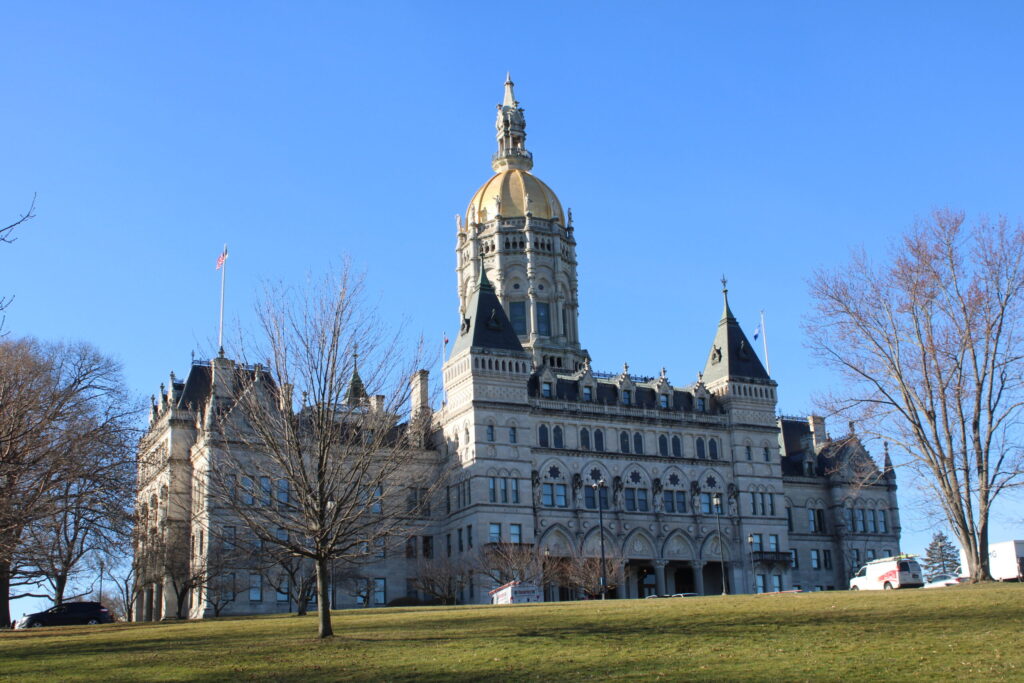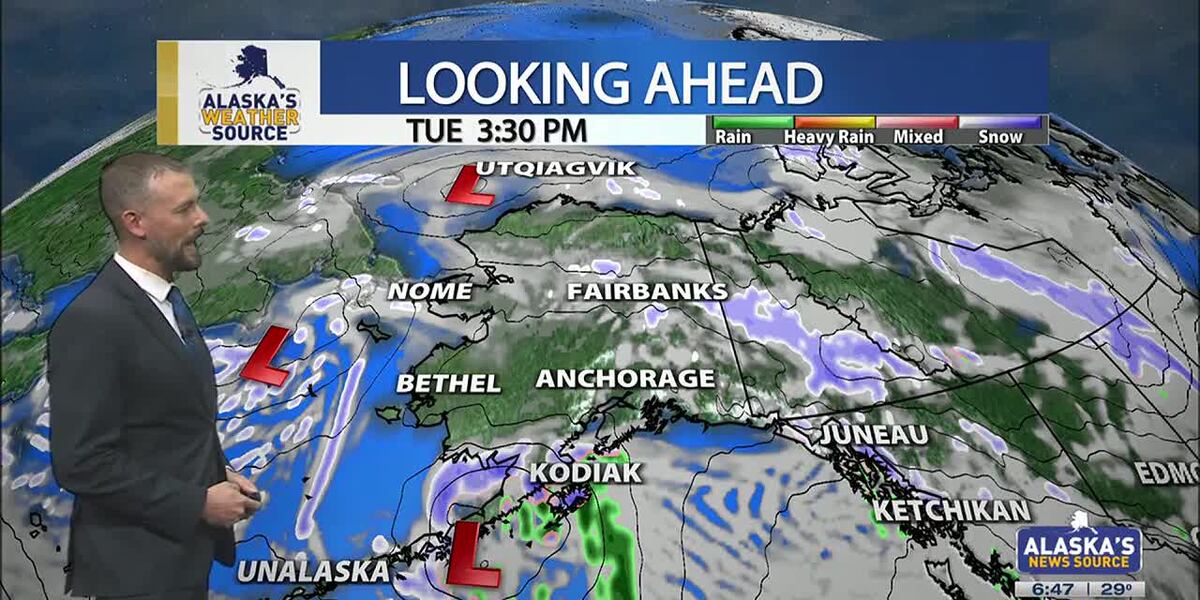WASHINGTON — Alaska Republican Sen. Lisa Murkowski has been through three federal government shutdowns during her tenure in the Senate. With Congress now in chaos over spending, she said earlier this week she is “very worried” about a fourth.
“I’ve been worried about a shutdown for a couple of weeks now,” she told reporters Tuesday. “I want to avoid it, but I’ve been worried.”
Congress must pass a government spending package for fiscal year 2024 — or at least approve a short-term funding solution — by Sept. 30 to avoid a shutdown. But members of Congress are struggling to advance spending legislation that stands any chance of passing both chambers.
Alaska Republican Sen. Dan Sullivan said Thursday getting spending legislation signed into law will take collaboration in both chambers of Congress and on both sides of the aisle.
“I don’t think shutdowns help at all. So I’m gonna work my hardest over here to make sure that doesn’t happen,” Sullivan said in an interview. “But you have split government. Democrats are in control over here. Republicans are in control in the House and the White House is controlled by the Democrats. So it’s gonna take some work among all three of those groups.”
[A federal government shutdown looks more and more likely. Here’s what to know.]
Such coordination has not come easily so far. The Senate has passed all 12 appropriations measures out of committee, but a vote on the so-called “minibus” of three spending bills has stalled over Republican objections. Over in the House of Representatives, Republican leadership can’t dredge up enough support for a stopgap funding deal or advance every individual spending bill to a floor vote. A procedural vote on the Department of Defense funding failed for the second time Thursday.
“I wouldn’t want to be Kevin McCarthy for love or money,” Murkowski said of the House speaker on Tuesday.
Alaska federal government employees are stressing about a looming shutdown, according to Dave Owens, Alaska representative for the American Federation of Government Employees.
The most recent federal government shutdown, which ended in 2019, lasted 35 days. The shutdown had an outsized impact on Alaska’s large population of federal employees. The Washington Post reported at the time that 1.7% of Alaska’s workforce was affected.
“After the last one for five weeks, that broke everything. I’ll tell you right now, it’s like, ‘Well they did it before, why can’t they do it again?’ ” Owens said.
Owens said he believes those working for the federal government in Alaska can weather a shutdown if it lasts a few days, but he is concerned about a shutdown lasting over a week.
“How it’s a big problem is if this goes a long period of time,” Owens said. “A few days will be OK, we can live through it.”
Sullivan was in office during the 2018 and 2019 shutdowns and is attempting to take precautions in the case of another. He tried to fast-track a bipartisan bill Thursday with Texas Republican Sen. Ted Cruz to ensure members of the Coast Guard are paid during a shutdown. During the 2019 shutdown, members of the Coast Guard were not paid, and the impacts were especially felt in Kodiak, home of a Coast Guard base.
“None of us want a government shutdown, but if it happens, we can’t let what happened in 2019 be repeated,” Sullivan said of Coast Guard pay on the Senate floor.
Democratic Washington Sen. Patty Murray objected, saying she shared Sullivan’s worries but that the Senate should be more focused on stopping a shutdown in the first place.
Asked if he is concerned about a shutdown, Sullivan said, “it’s prudent to be concerned, which is why you saw me bring up that bill.”
The spending bills have, in large part, been held up by House Freedom Caucus members who have objected to short-term spending deals and have resisted other funding bills, pushing for more conservative top-line spending figures and other priorities.
“It’s their message,” Murkowski said of those Freedom Caucus members. “And the problem is we need more than messages to keep the government open.”
If the House is unable to agree on a spending plan by the funding deadline, Murkowski said the Senate will have “break glass” to avert a shutdown. She wasn’t sure what such a last resort would look like.
[Sullivan forms new Alaska council for selecting federal judges, prompting concern about delay from Murkowski]
“I think if it’s clear that the House is not going to be able to advance, we’re going to have to figure out what exactly is that role and how can how can we lead on this,” Murkowski said of the Senate, advising reporters to “stay tuned.”
Sullivan said signs are pointing to a stopgap funding bill, but acknowledged that would take bipartisan buy-in in the House.
“I’m hopeful that the House on both sides of the aisle over there can get to a resolution that works,” he said.
Despite the discord, Murkowski and Sullivan were hopeful that Congress can still avert a shutdown.
Murkowski said on Tuesday, “there’s plenty of daylight. We can figure this out. But it takes collective will and it looks like right now on the House side that’s very constrained.”
• • •

:quality(70)/cloudfront-us-east-1.images.arcpublishing.com/adn/F67HRGMZ7JHIZJHEQQO7QEA46E.jpg)




















/cdn.vox-cdn.com/uploads/chorus_asset/file/25822586/STK169_ZUCKERBERG_MAGA_STKS491_CVIRGINIA_A.jpg)

/cdn.vox-cdn.com/uploads/chorus_asset/file/25821992/videoframe_720397.png)



